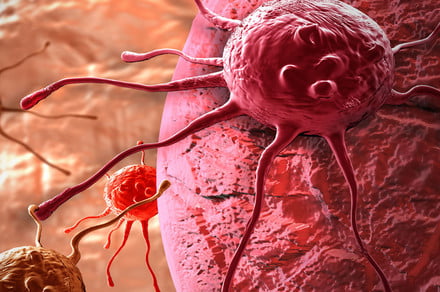A cancer diagnosis can be a devastating event. And for patients suffering from brain cancer, the diagnosis carries extra weight. It’s not just the disease that’s taxing — treatment itself can be grueling on both the body and the spirit.
In a bid to improve quality of life for cancer patients, a team of researchers at the Massachusetts Institute of Technology has turned to machine learning to help avoid toxicity from cancer medications. The researchers are specifically targeting glioblastoma, the most aggressive form of brain cancer, which carries a prognosis in adults of less than five years.
Cancer therapies are tough, combining multiple drugs with radiation treatment — a cocktail that can cause crippling side effects. The goal of the MIT project is to use artificial intelligence to figure out the fewest and smallest doses of medication that could still be effective. That way side effects are kept to a minimum.
To pinpoint the smallest effective doses, the MIT team trained their A.I. on models of treatment regimens that are currently in use, adjusting the dosage until it could identify an optimal treatment protocol that carries the lowest potency and frequency for a tumor of a given size. The system simulated 50 trials on patients and managed to decrease the dosage by up to a half of the doctor-recommended doses.
The A.I. was trained using a method called reinforced learning, similar to how trainers teach pets to obey commands. Do the right action, get a reward. Do the wrong action, don’t get a reward (or even a reprimand). For the A.I., the award wasn’t a treat but a positive or negative number that signaled to the algorithm its success.
The A.I. isn’t meant to take over the jobs of physicians altogether. Rather, it’s meant to guide physicians towards offering more suitable treatment options.
“The recommendations from the algorithm can be used by human experts to design safer and more effective clinical trials,” Pratik Shah, a principal investigator at MIT who supervised the research, told Digital Trends. “These digital algorithmic systems may also inform and educate individual patients about potential trajectories their diseases could take in response to treatments.”
A.I. is becoming increasingly valued in healthcare, and is being applied to everything from discovering new medications to diagnosing diseases.
The MIT research will be presented this week at the 2018 Machine Learning for Healthcare conference at Stanford University.
Editors’ Recommendations
- Scientists have mapped the genome of the most common cancer among younger men
- New light-emitting implant zaps cancer tumors with incredible precision
- A.I. detects skin cancer better than dermatologists in international study
- Chinese search giant Baidu creates an open-source A.I. for detecting cancer
- Atari co-founder and video game pioneer ‘Ted’ Dabney dies at 81

